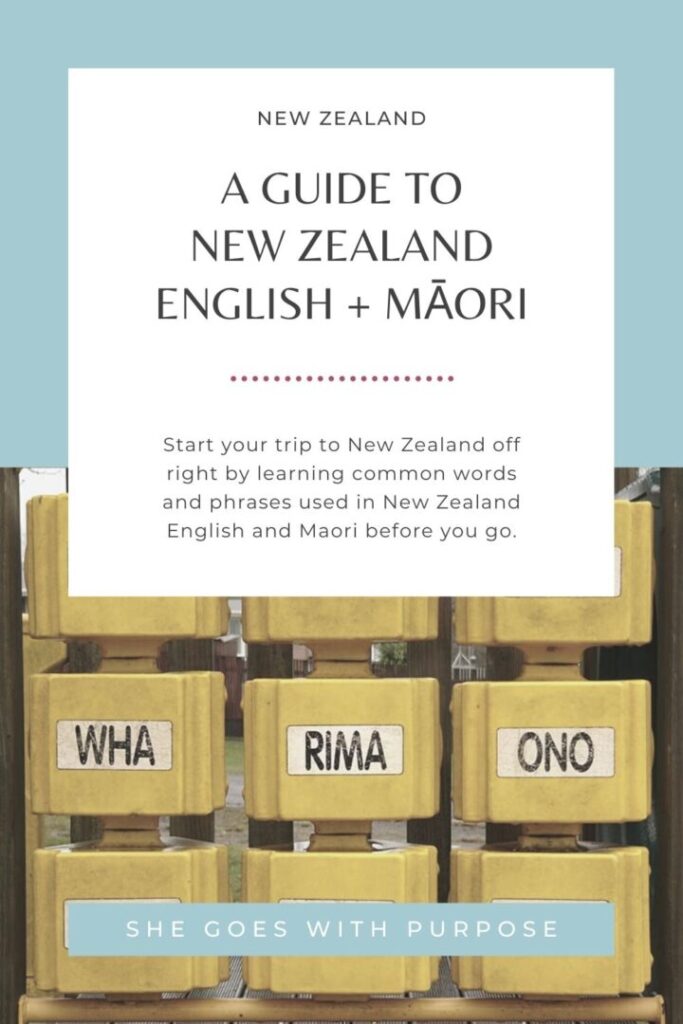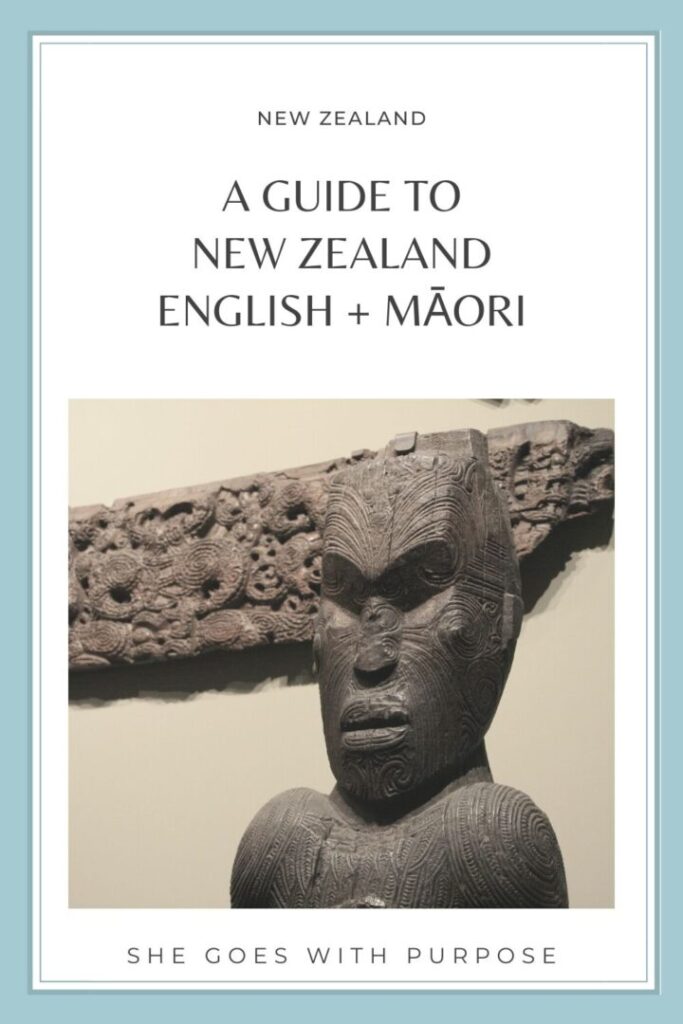A Helpful Guide to New Zealand English + Māori Language
Before I left to travel around New Zealand, I was surprised when a few people asked whether or not English is spoken there. It was a good question, though, and the answer is yes, they do! Of course, it’s slightly different than American English.
New Zealand English seems to be a combination of British English, Māori, and New Zealand slang and they have a unique accent different from both the British and Australian accents.
Reading place names and making Kiwi friends will be easier right off the bat if you have a base knowledge of local slang and the Māori language before you travel there.
In this post you’ll learn:
- New Zealand English and the Māori language basics
- Common slang words and phrases
- Ways to familiarize yourself with the language before you travel there
About the New Zealand Accent
To my American ear, the New Zealand accent sounds similar to the Australian accent (with some key pronunciation differences), although I’m sure Kiwis and Ozzies would disagree. To understand New Zealand English, you must first know how certain sounds are pronounced, particularly vowels.
O – Instead of sounding like “oh” at the end of words, it can sometimes sound like “toy.” Example: “Hello” pronounced “hell-oy.”
E – Can sometimes sound like the “i” in the word bin. Example: “Ben” sounds like “bin.”
I – Sometimes replaced with a “u” sound, like in the word “up.” Example: “fish and chips” sounds like “
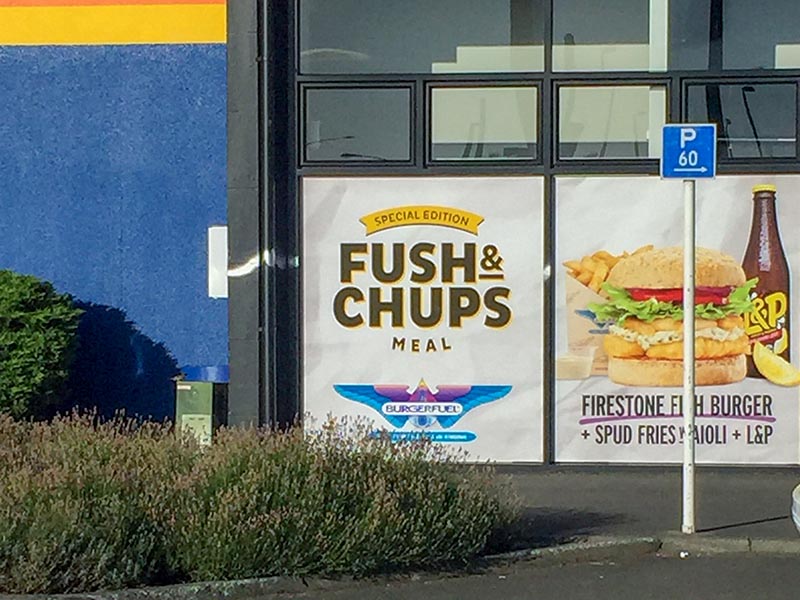
Common New Zealand Slang
jandals = flip-flops
heaps = lots
sweet as = it’s all good
tramping = hiking
Maccas = McDonald’s
chur = thank you, no problem
lift = elevator
kiwi = New Zealander
gumboots = rubber boots
cuppa = cup of tea
chilly bin = cooler
buggered = tired
travelator = escalator
carpark = parking lot
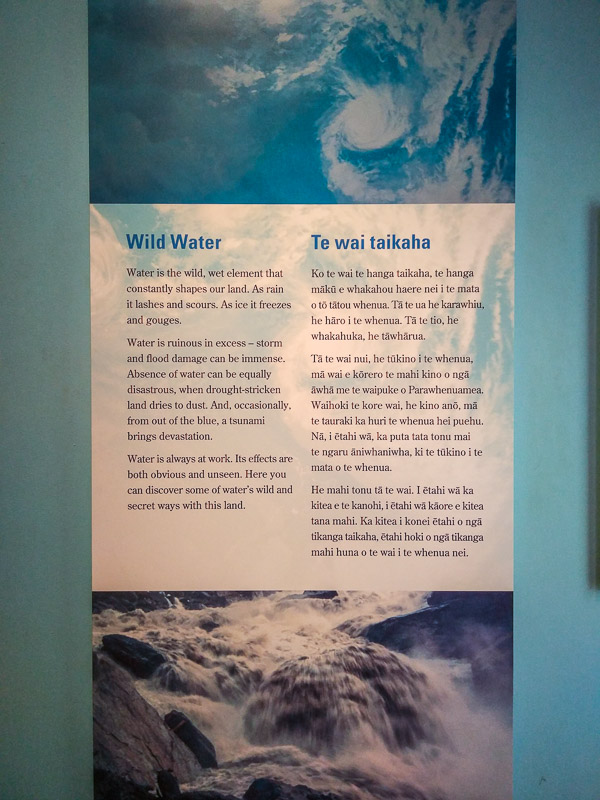
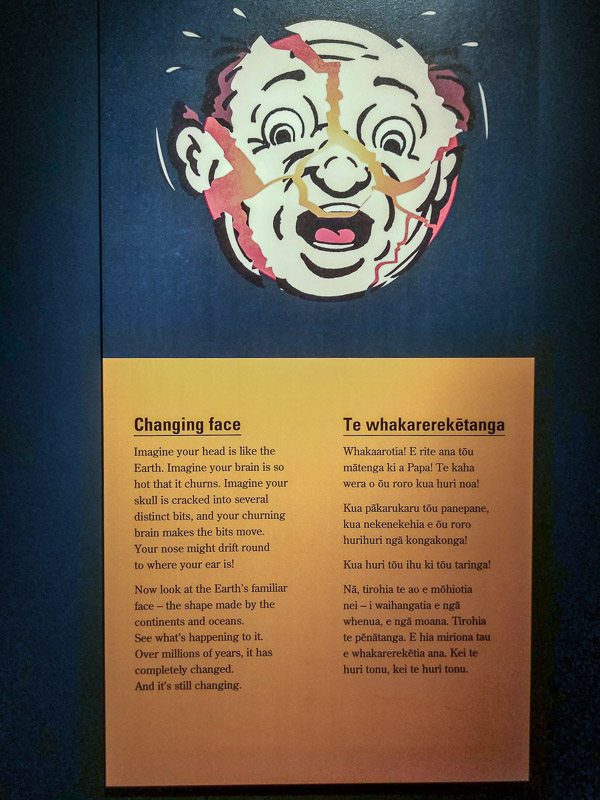
Common New Zealand Phrases
as = so or really, added to words to amplify the meaning. Examples: sweet as, easy as, right as, dark as, cute as — I could go on for days.
bugger all = not much of something
you alright? = how are you?
yeah… nah = no
taking the piss = make fun of
she’ll be right = it will be fine
wee bit = small amount
New Zealand Slang Similar to New England Slang
British English also had an influence on some lingo in New England where I was born and raised! So, there were a few New Zealand slang words that actually meant the same thing.
stoked = happy
dodgy = suspicious
mean = awesome
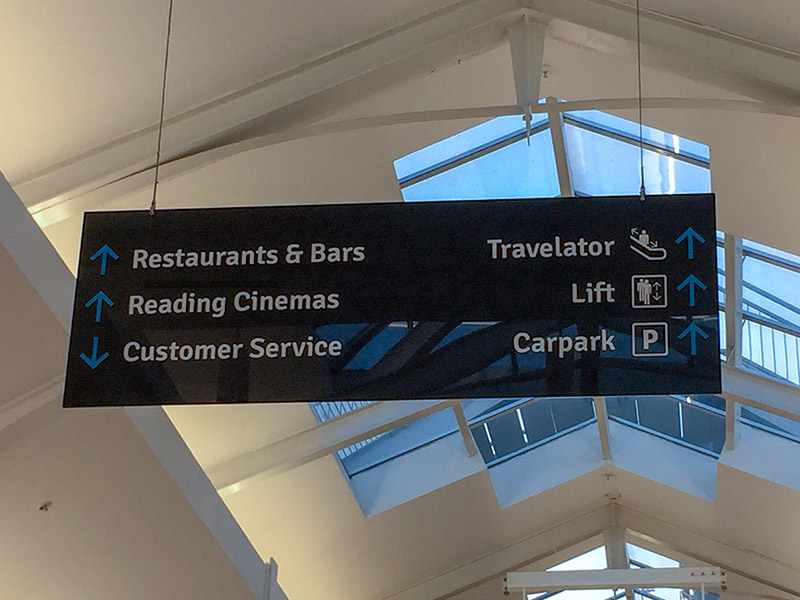
Words That Have a Different Meaning in the US
Some words have completely different meanings in New Zealand than they do in the US. So, until I learned what they were referring to, I was a little confused.
handle = pint of beer
jug = kettle
dairy = convenience store
crook = unwell
bags = an expression of ownership
RELATED POSTS
- Things to Know About New Zealand: A Guide to the Practical and Quirky
- New Zealand Trip Cost Breakdown For Solo Female Travelers
- 9 Hostels in New Zealand Ranked According to a Solo Female Traveler
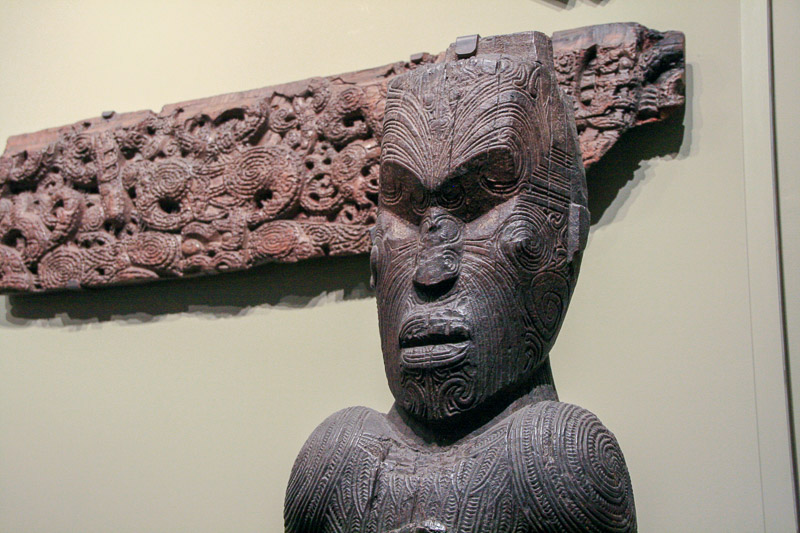
About the Māori Language
Te Reo Māori, the language of the indigenous Māori people, is spoken alongside English throughout all of New Zealand since it was made an official language in 1987, which is why I’ve included it in this guide.
It’s common to see the Maori translation for English words on most signs and buildings, the names of a lot (maybe most?) of the places in New Zealand are Māori, and common words and phrases are used fluidly in conversation.
I admire the widespread use of the Māori language and dedication to the culture that I witnessed across New Zealand. Although as a white American who comes from where the “first Thanksgiving” was held, I realize there are always flaws in the way indigenous cultures are embraced by white people, and I try my hardest to be a supportive ally.
Examples of good and bad ways Māori culture is being embraced in New Zealand are described in this New York Times article. Learning and using Te Reo Māori is one way to show your support.
The Māori Alphabet
Or Te Pū Taka Māori is made up of 15 letters.
In alphabetical order: a, e, h, i, k, m, n, ng, o, p, r, t, u, w, wh
- Five vowels: pronounced short (a, e,
i , o, u) or long (ā, ē, ī, ō, ū) distinguished by the macron accent. The short and long vowel sounds are VERY important to pronounce correctly. If switched, the word could have a very different meaning. - Eight consonants: h, k, m, n, p, r, t, w.
- Plus, two digraphs: wh (sounds like f), ng (sounds like ng at the end of sing, never like the g in tiger)
These are just the bare minimum basics. There is far more nuance to the pronunciation of certain words that I couldn’t even begin to explain since I’m a complete beginner with this language!
Maori Language and Maori Dictionary are two helpful resources with audio clips to help learn how to correctly pronounce Māori words.
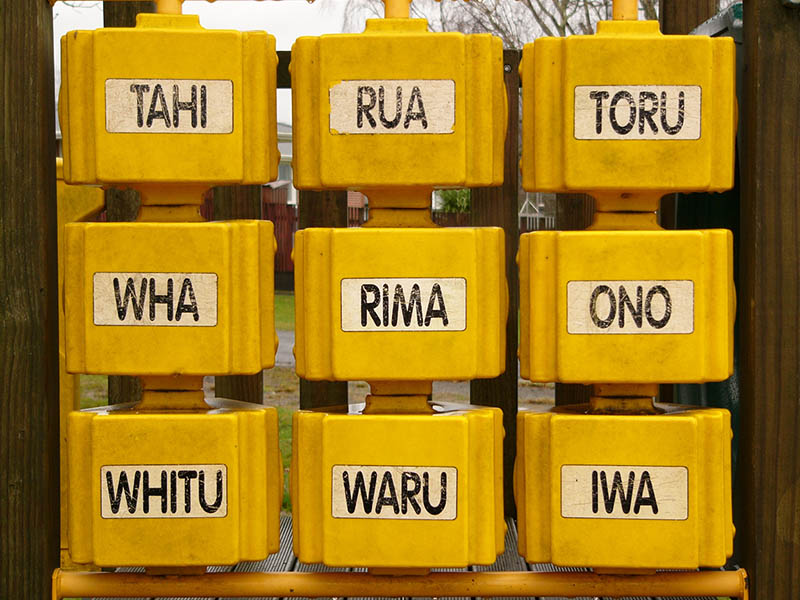
Common Māori Words and Phrases
These are the Māori words and phrases I heard most frequently.
aotearoa (ah-or-teh-ah-raw-aw) = long white cloud, New Zealand
kia ora (key ah-aura) = hello
mauri ora (mo-ree ah-aura) = stay well, goodbye
ae (eye) = yes
ehē (eh-heh) = no
kei te pai (kay teh pie) = you’re welcome
haka (hah kah) = generic term for a Māori dance
kiwi (kee wee) = small flightless bird
moa (moh ah) = large extinct flightless bird
pākehā (paah keh haah) = European, white person
Ways to learn New Zealand English and Māori
Once you’re in New Zealand, you’ll quickly pick up on all the different words and phrases. Two easy ways to get a head start is by listening to the words and seeing the words.
Listen to the Accent
The more you hear the accent, the more accustomed you’ll be. Watch television shows or movies with Kiwi actors or ones with ties to New Zealand before you go. This is great for aural or verbal learners.
I suggest these to start:
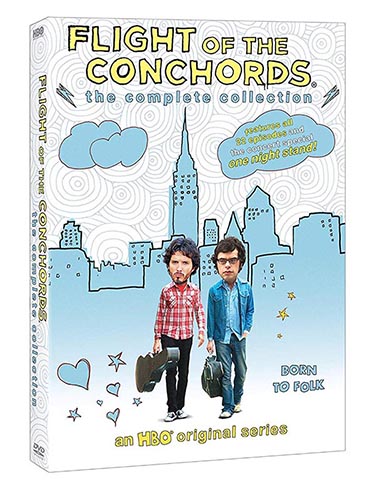
Flight of the Concords
A musical comedy about two Kiwi musicians named Jemaine and Bret (not Britt like I thought for the longest time), who move to New York City to pursue a career as musicians. Each episode is full of awkward hilarity, and in hindsight, is full of the New Zealand humor I grew so fond of while I was there.
Get both seasons on DVD or watch on Prime Video for free with an Amazon Prime account.
Read More: 6 Ways Amazon Prime Helps Save Money for Travel
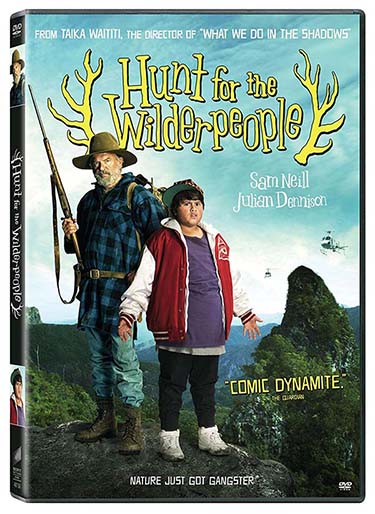
Hunt for the Wilderpeople
From New Zealand director Taika Waititi (maybe you know him as the director of Thor: Ragnarok), this is a story about a city kid raised in foster care who runs away into the New Zealand bush with his new foster father when it seems he may be moved to another foster home. Also, action-packed with New Zealand humor.
Buy Hunt for the Wilderpeople on DVD, rent or buy a digital copy on Prime Video or stream it on Hulu.
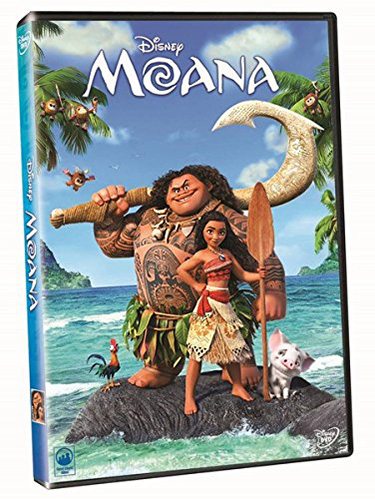
Moana
Set on a fictional South Pacific island called Motunui (motu = island and nui = big in Māori) thousands of years ago, Moana tells the story of a young chief-to-be who goes on a mission to restore the heart of Te Fiti with the demigod Maui. The story of Maui is folklore shared amongst several South Pacific cultures including the Māori culture. The voice actors who play Moana’s grandmother, her father, and the psychedelic crab are of Māori heritage.
Buy Moana on DVD or get a digital copy on Prime Video.
>>> Fun Fact: Moana means ocean in Māori!
See the Words
Visual learners can get a headstart with this deck of playing cards designed to help you learn a language while you play War or Golf (my personal favorite) or Solitaire.
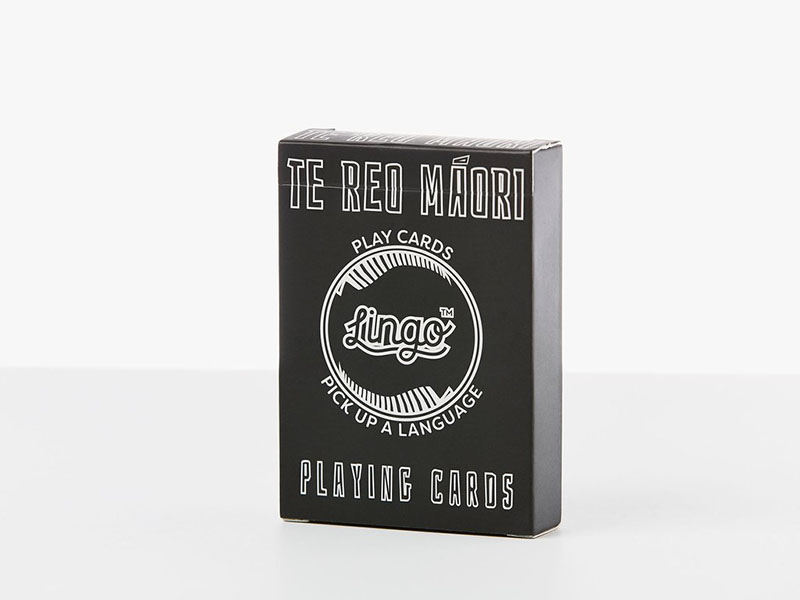
Te Reo Māori Lingo Cards (no longer for sale)
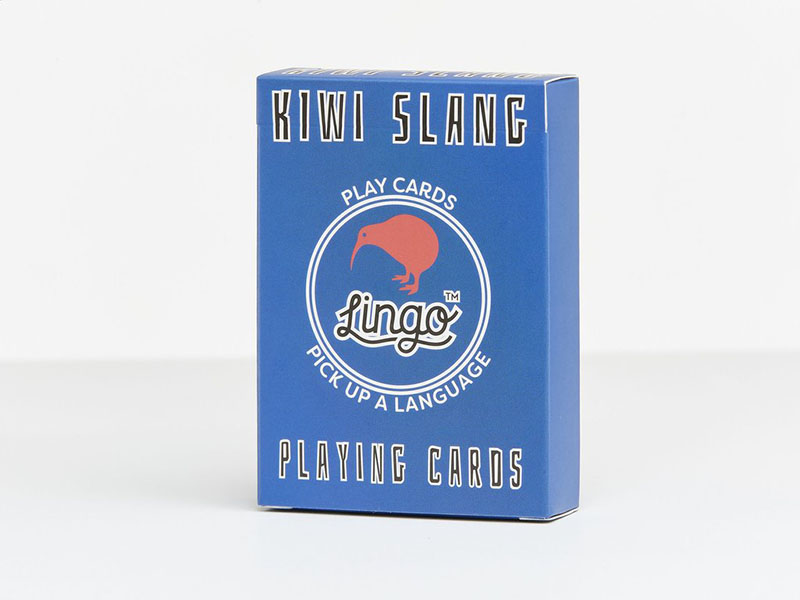
Lingo Cards inspired this blog post when they provided their Kiwi Slang and Te Reo Māori decks of cards for me to try. All opinions are, of course, my own.
SAVE THIS POST FOR LATER!
